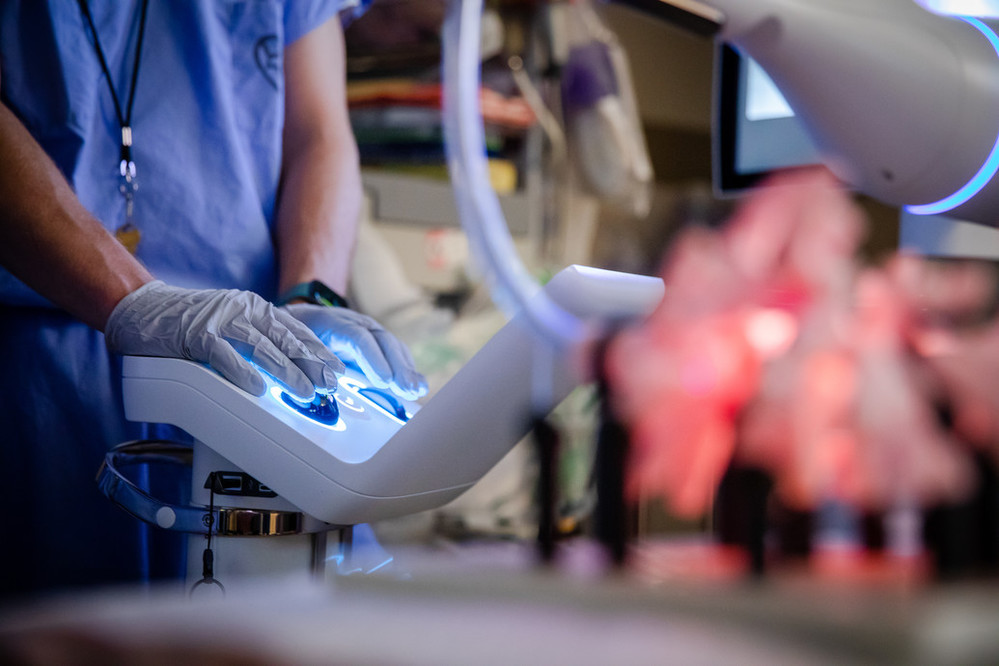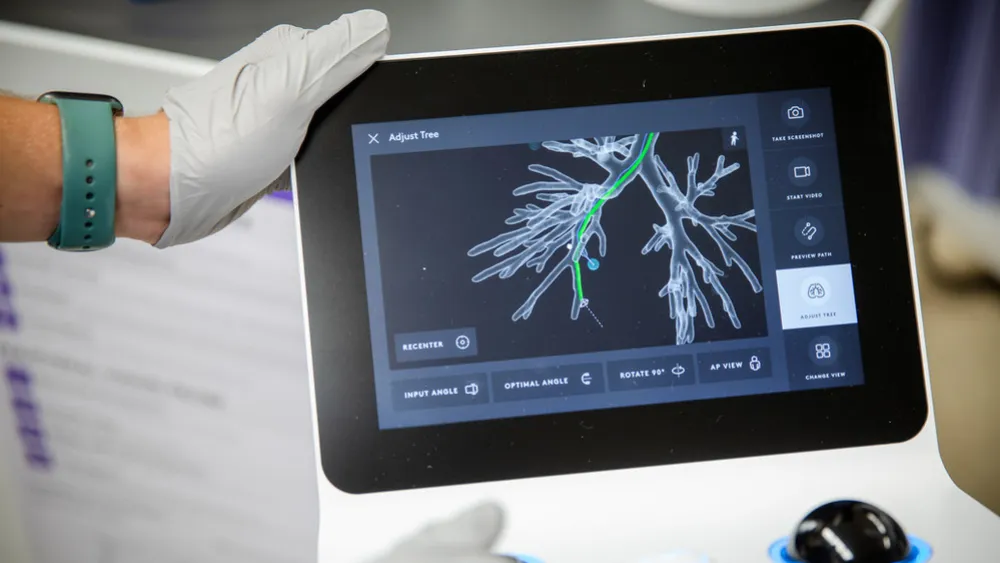
Methodist Is 1st in Nebraska, 2nd in Iowa With Lung Cancer-Fighting Ion Robot
Published: Sept. 10, 2021


Patients at Methodist Hospital in Omaha and Methodist Jennie Edmundson Hospital in Council Bluffs will be among the first in the region to have access to the latest technology available in the ongoing fight against lung cancer.
Methodist Hospital in Omaha became the first in Nebraska to acquire the Ion by Intuitive – a robotic-assisted surgical system for lung biopsies. Jennie Edmundson is now the second location in Iowa with the technology – the other being in Des Moines. Methodist performed its first procedure on Aug. 20 and Methodist Jennie Edmundson on Sept. 3.
The new technology helps physicians access all lung nodules to detect and obtain tissue samples. Instead of taking a wait-and-see approach in some cases, physicians using the Ion technology will benefit from diagnostic answers and be able to jump-start the path to treatment, if warranted.
“This new technology is a game changer for us,” said Adam Wells, MD, a pulmonologist with Methodist Physicians Clinic and Methodist Hospital. “Through our low-dose CT screening initiative we have certainly been able to identify more lung cancers than ever before. But with this new technology, we can more quickly and safely get a diagnosis for our patients with the goal of quickly identifying, and curing, early stage lung cancer.”
Here’s how Ion system works:
- Using CT scan data of a patient’s lungs, doctors generate a 3D image of the airways and its branches to identify the target nodule and create a preplanned path to reach it.
- During bronchoscopy, the thoracic surgeon uses the Ion controller to navigate an ultrathin catheter along the preplanned path to the nodule. The flexible catheter has 180 degree articulation and is able to pass around tight turns and into the branches of the lungs. The system allows the surgeon to know exactly where the catheter is in the patient’s lungs at all times.
- Once the catheter reaches the nodule, robotic technology enables the pulmonologist to lock the catheter in place. The pulmonologist extends the special Ion system needle through the catheter into the lesion to obtain a tissue sample to biopsy. This can be done more than once if needed.
- The pulmonologist withdraws the catheter and bronchoscope and sends the tissue sample to a pathologist to analyze for cancer cells. Ion easily integrates with existing lung nodule biopsy systems and imaging technology, including fluoroscopy, ultrasound and CT.
“To be able to reach nodules that we were unable to access previously is a huge step forward for Methodist and for our patients,” said Sumit Mukherjee, MD, a pulmonologist with Methodist Physicians Clinic and Methodist Jennie Edmundson Hospital. “The technological advancements with lung cancer are to be applauded. I know I speak for my fellow physicians in praising Methodist for giving us access to such incredible cancer-fighting technology.”

